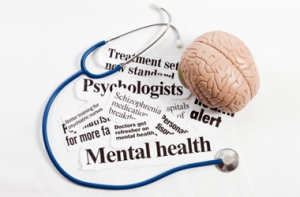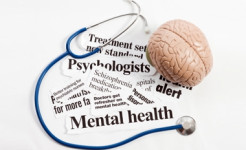Items filtered by date: May 2017
Depression not as big a killer as previously thought
Over three decades of research suggest that depression increases the odds of death. However, a new research paper throws doubt on this presumed link after finding no evidence of a direct association between depression and all-cause mortality. The paper, authored by a research team from The Johns Hopkins University, Federation University Australia and the University of Amsterdam (UvA), involved the largest ever analysis on the topic and is published in the latest edition of World Psychiatry.
Since the 1980s, numerous studies have appeared which suggest a high risk of mortality among people suffering from depression. This has generally been taken as evidence that depression directly causes death. As part of their study, researchers Beyon Miloyan and Eiko Fried re-evaluated this supposed link by reassessing 293 studies derived from 15 systematic reviews. The studies in question comprised over 3.6 million participants and 400,000 deaths.
Despite the widespread suggestion that depression leads to more death, at least 95% of the studies the researchers investigated were found to be of insufficient quality. Using quantitative and qualitative methods, the researchers identified a pronounced publication bias. Specifically, studies that identified the largest associations between depression and mortality featured small samples, a low number of deaths, and short follow-up periods. Moreover, the researchers discovered that only about 5% of the 293 studies adjusted their statistical models for other mental health conditions like anxiety or substance use problems, which are very common among depressed patients: comorbidity rates exceed 50%.
The researchers also found that two-thirds of the studies comprised respondents who were pre-selected on the basis of medical conditions. Many symptoms of depression like insomnia and fatigue are shared with various physical conditions or may arise as side effects of medications used to treat existing disorders. This, say Miloyan and Fried, could lead to the conclusion that depression is the cause of death, even though death may be better attributed to preexisting illnesses. To eliminate this confound, one solution is to properly control for comorbid psychological and physiological conditions, another to specifically study depressed patients without pre-existing physical illnesses.
'The studies we looked at have over the years led many people to place too easily, and perhaps mistakenly, a lot of confidence in the notion that depression is directly to blame for the high mortality', says Miloyan, a researcher at The Johns Hopkins University and faculty member at Federation University Australia. 'In fact, when we look more closely at the data from the few studies that are of acceptable quality, we do not find convincing evidence that depression is directly associated with all-cause mortality.'
Instead, the results suggest that other variables, more specifically health behaviours and comorbidity, might be related to the higher rate of mortality among depressed individuals. 'For example, it is known that depression goes hand in hand with unhealthy lifestyle behaviours such as smoking, drinking and physical inactivity', says Fried, a psychologist and postdoctoral researcher at the UvA. 'Smoking in particular is associated with an increased risk of developing depression and with many causes of death. Such complex interactions among variables associated with depression and death, which have been largely ignored in the literature, imply that it is premature to draw strong causal conclusions.'
Miloyan and Fried hope their findings encourage other researchers to investigate this question more carefully before designing and implementing programmes and policies aimed at curbing depression in order to substantially reduce deaths. Miloyan: 'This isn't to suggest that depression shouldn't be treated, of course, but rather that as far as the cause of overall mortality is concerned, the key factors probably lie somewhere else and warrant more rigorous future research.'
Taken from: https://www.sciencedaily.com/releases/2017/05/170516091249.htm
















